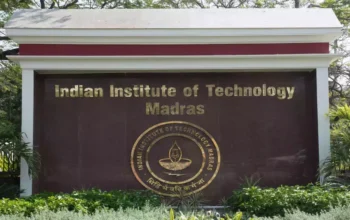The landscape of data and information is rapidly evolving, prompting business schools to venture into the realms of new-age technologies to keep their students abreast of current trends. An increased emphasis on artificial intelligence (AI) and data science is evident in the shifting curricula of these institutions.
Ankur Sinha, co-chair of CDSAI, notes that businesses now recognize the significance of managers closely engaging with technology centers to gain a competitive advantage. Recent years have witnessed a shift in business school curricula towards integrated inputs in technology areas, particularly data science and AI. This shift aims to produce managers equipped with the right blend of competencies to meet the demands of emerging roles.

New-age technologies such as data science and AI are increasingly influencing societies, economies, and businesses globally. Understanding the potential of these technologies and their optimal application has become crucial. While companies have long utilized data for decision-making and generating business value, the expansion of the digital universe and increased computational power are driving an organic transformation.
Ranjan Banerjee, Dean of BITSoM, highlights the evolution of management curriculum from its manufacturing-centric focus in the 70s to the present digitalization era. He emphasizes that while managers need not be tech experts, they should understand new-age tech. BITSoM is actively establishing a design thinking lab in collaboration with US universities and a dedicated center for data analytics.
In addition to dedicated centers focusing on new-age technologies, management institutes are offering specialized courses in AI, data science, and business analytics. IIM Bangalore, for instance, provides a two-year MBA program in business analytics. R Srinivasan, the program’s chairperson, stresses that data analytics and AI/machine learning are no longer just competitive advantages but core technologies across industries. Future managers must integrate these disciplines into their understanding of business.

The evolving business landscape has also witnessed the integration of various branches in core functions, such as design thinking, innovation, and financial technology. IIM Kashipur has a Design Innovation Centre, and IIM Raipur has a dedicated Centre for Digital Economy. Sumeet Gupta, Head of the Centre of Digital Economy at IIM Raipur, notes that tech companies are taking the lead in various domains, making technology an integral aspect of traditional business functions.
As part of their activities, institutions are organizing conferences and seminars on the digital economy to prepare future managers. IIM Raipur’s Centre for Digital Economy, for instance, will be hosting its fourth conference on ‘Creating a responsible and responsive digital society’ on December 3-4, 2021.



